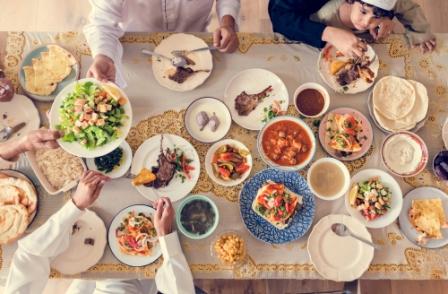The Key Festivals in Islam
There are two key celebrations in Islam - Eid-ul-Fitr and Eid-ul-Adha.
Eid-ul-Fitr follows and concludes the Holy month of Ramadan, which is an auspicious month of fasting and worship in Islam. With Eid-ul-Fitr 2018 now recently behind us, it is time to concentrate on the upcoming celebration of Eid-ul-Adha.
Eid-ul-Adha follows shortly after the annual pilgrimage of Hajj and commemorates the sacrifice made by Prophet Ibrahim (A.S) in his devotion to Allah SWT.

The two Eid’s have significant similarities and significant differences, too. For example, on both of these festivals, a Muslim will wake up early, bathe, dress in their best attire and visit the local Mosque to offer Eid salah (prayers) in congregation. Following this, they will celebrate and enjoy sweetmeats and a feast with family, friends and loved ones and often give out gifts to the children.
On Eid-ul-Fitr, prior to the offering of the Eid prayers, every Muslim of able means is required to donate a small amount by way of fitrana (also known as Zakat ul Fitr), which is an offering to those less fortunate to enable them to enjoy the day as comfortably as everyone else.
On Eid-ul-Adha, however, a donation is given by way of Qurbani (sacrifice) to commemorate the sacrifice of Prophet Ibrahim (A.S.). This sacrifice is carried out by way of slaughtering an animal (usually a cow, sheep, buffalo, camel or goat) and the meat from the sacrificed animal is then to be distributed evenly in three portions between yourself, family or neighbours and those in need.
Eid-ul-Adha 2018
This year, Eid-ul-Adha is estimated to fall on or around 21st August 2018 – subject to the sighting of the moon. For accurate timings, please consult with your local Mosque or Imam closer to the time.
To donate your Qurbani with Islamic Help this Eid-ul-Adha 2018, see here or call our team on 0121 446 5682 for more information.



